◄ 1959 ►
Jan | Feb | Mar | Apr | May | Jun | Jul | Aug | Sep | Oct | Nov | Dec
| January | ► | ▲ | ||||
|---|---|---|---|---|---|---|
| 1 | 2 | 3 | ||||
| 4 | 5 | 6 | 7 | 8 | 9 | 10 |
| 11 | 12 | 13 | 14 | 15 | 16 | 17 |
| 18 | 19 | 20 | 21 | 22 | 23 | 24 |
| 25 | 26 | 27 | 28 | 29 | 30 | 31 |
![]() Jan 1: Hours after Cuban rebels seize Santiago de Cuba and Santa Clara, President Fulgencio Batista flees to the Dominican Republic as rebel forces close in on Havana. He is believed to have packed $300 million on the plane before taking off. Before leaving, Batista names Supreme Court judge Carlos Piedra as the luckless caretaker President. Piedra’s first act is to order government forces to lay down their arms.
Jan 1: Hours after Cuban rebels seize Santiago de Cuba and Santa Clara, President Fulgencio Batista flees to the Dominican Republic as rebel forces close in on Havana. He is believed to have packed $300 million on the plane before taking off. Before leaving, Batista names Supreme Court judge Carlos Piedra as the luckless caretaker President. Piedra’s first act is to order government forces to lay down their arms.
![]() Jan 2: As Fidel Castro’s forces roll into Havana, Castro names Dr. Manuel Urrutia Lleo as President of Cuba. Urrutia will be quickly sidelined as a figurehead. He will resign in July and seek asylum in the Venezuelan embassy before settling in the U.S.
Jan 2: As Fidel Castro’s forces roll into Havana, Castro names Dr. Manuel Urrutia Lleo as President of Cuba. Urrutia will be quickly sidelined as a figurehead. He will resign in July and seek asylum in the Venezuelan embassy before settling in the U.S.
![]()
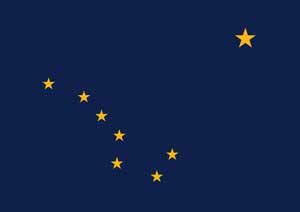 Jan 3: Alaska is admitted into the union as the 49th state. The 49th star will be officially added to the American flag on July 4.
Jan 3: Alaska is admitted into the union as the 49th state. The 49th star will be officially added to the American flag on July 4.
![]()
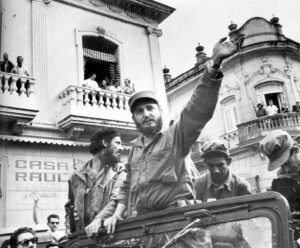 Jan 8: Fidel Castro rolls triumphantly into Havana after the city was captured by rebel forces.
Jan 8: Fidel Castro rolls triumphantly into Havana after the city was captured by rebel forces.
![]() Jan 8: Under France’s new constitution, Charles de Gaulle is inaugurated as the first President of the Fifth Republic.
Jan 8: Under France’s new constitution, Charles de Gaulle is inaugurated as the first President of the Fifth Republic.
![]() Jan 10: The U.S. District Court in Atlanta orders the University System of Georgia to integrate its segregated colleges. The court strikes down the requirements that at least two college alumni had to sign for a student in order to enroll.
Jan 10: The U.S. District Court in Atlanta orders the University System of Georgia to integrate its segregated colleges. The court strikes down the requirements that at least two college alumni had to sign for a student in order to enroll.
![]() Jan 10: The U.S. District Court in Little Rock orders the school board to reopen the city’s schools on an integrated basis. The schools have been closed for four months.
Jan 10: The U.S. District Court in Little Rock orders the school board to reopen the city’s schools on an integrated basis. The schools have been closed for four months.
![]() Jan 21: Film director Cecil B. DeMille dies at the age of 77.
Jan 21: Film director Cecil B. DeMille dies at the age of 77.
![]() Jan 21: Carl Switzer, the former child actor known as “Alfalfa” in the Little Rascals film series, is shot and killed during a fight over a claimed debt. The shooter will be cleared as acting in self-defense. Switzer was 31.
Jan 21: Carl Switzer, the former child actor known as “Alfalfa” in the Little Rascals film series, is shot and killed during a fight over a claimed debt. The shooter will be cleared as acting in self-defense. Switzer was 31.
![]()
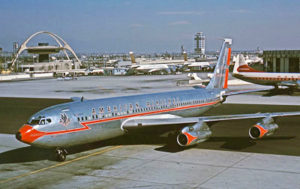 Jan 25: American Airlines inaugurates the first regular American passenger jet service, flying a Boeing 707 from Los Angeles to New York in four hours and three minutes.
Jan 25: American Airlines inaugurates the first regular American passenger jet service, flying a Boeing 707 from Los Angeles to New York in four hours and three minutes.
![]() Jan 25: Pope John XXIII announces the Second Vatican Council, which will be convened the following year in Rome.
Jan 25: Pope John XXIII announces the Second Vatican Council, which will be convened the following year in Rome.
![]()
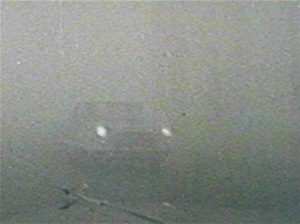 Jan 29: The afternoon is dark as midnight as a dense grey-green smog envelopes London, Manchester and Birmingham. With visibility of only one to two feet in broad daylight, this smog is even thicker than the Great Smog of 1952. Shifting winds will dissipate this smog after only three days.
Jan 29: The afternoon is dark as midnight as a dense grey-green smog envelopes London, Manchester and Birmingham. With visibility of only one to two feet in broad daylight, this smog is even thicker than the Great Smog of 1952. Shifting winds will dissipate this smog after only three days.
![]() Jan 29: The Walt Disney film Sleeping Beauty is released. Also released is the Disney short Grand Canyon, which features the music of Ferde Grofé’s Grand Canyon Suite and will win an Oscar for Best Documentary Short.
Jan 29: The Walt Disney film Sleeping Beauty is released. Also released is the Disney short Grand Canyon, which features the music of Ferde Grofé’s Grand Canyon Suite and will win an Oscar for Best Documentary Short.
| ◄ | February | ► | ▲ | |||
|---|---|---|---|---|---|---|
| 1 | 2 | 3 | 4 | 5 | 6 | 7 |
| 8 | 9 | 10 | 11 | 12 | 13 | 14 |
| 15 | 16 | 17 | 18 | 19 | 20 | 21 |
| 22 | 23 | 24 | 25 | 26 | 27 | 28 |
![]() Feb 1: Male voters in Switzerland vote overwhelmingly, 67% to 33%, against giving women the right to vote. The French-speaking cantons of Vaud and Neuchâtel approved women voting in local elections. Swiss women won’t get full suffrage until 1971.
Feb 1: Male voters in Switzerland vote overwhelmingly, 67% to 33%, against giving women the right to vote. The French-speaking cantons of Vaud and Neuchâtel approved women voting in local elections. Swiss women won’t get full suffrage until 1971.
![]() Feb 2: Schools in Norfolk and Arlington County, Virginia, integrate peacefully in accordance with a federal court order. In Arlington, white students volunteer to escort black students to classes in previously all-white schools. In Norfolk, schools re-open after having been closed for four months in a failed effort to avoid integration.
Feb 2: Schools in Norfolk and Arlington County, Virginia, integrate peacefully in accordance with a federal court order. In Arlington, white students volunteer to escort black students to classes in previously all-white schools. In Norfolk, schools re-open after having been closed for four months in a failed effort to avoid integration.
![]()
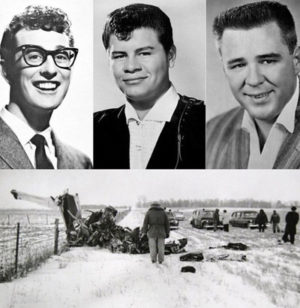 Feb 3: On the Day the Music died, a chartered airplane carrying musicians Buddy Holly, Ritchie Valens and J.P. Richardson (a.k.. The Big Bopper), and piloted by 21-year-old Roger Peterson, crashes into a cornfield shortly after take-off in foggy conditions near Clear Lake, Iowa, killing all four on board. Holly had chartered the plane for his band in order to avoid a long cold bus ride to their next gig in Moorhead, Minnesota. Holly’s bass player, Waylon Jennings, avoids Holly’s fate because he gave up his seat to Richardson, who was suffering from the flu. Valens flipped a coin with Holly’s guitarist Tommy Allsup to win Allsup’s seat on the plane.
Feb 3: On the Day the Music died, a chartered airplane carrying musicians Buddy Holly, Ritchie Valens and J.P. Richardson (a.k.. The Big Bopper), and piloted by 21-year-old Roger Peterson, crashes into a cornfield shortly after take-off in foggy conditions near Clear Lake, Iowa, killing all four on board. Holly had chartered the plane for his band in order to avoid a long cold bus ride to their next gig in Moorhead, Minnesota. Holly’s bass player, Waylon Jennings, avoids Holly’s fate because he gave up his seat to Richardson, who was suffering from the flu. Valens flipped a coin with Holly’s guitarist Tommy Allsup to win Allsup’s seat on the plane.
![]() Feb 10: A tornado strikes St. Louis at 2:20 in the morning, killing 21 and injuring hundreds.
Feb 10: A tornado strikes St. Louis at 2:20 in the morning, killing 21 and injuring hundreds.
![]()
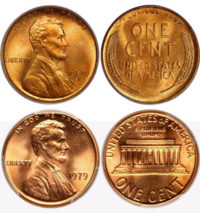 Feb 12: A new version of the Lincoln penny is introduced to coincide with Abraham Lincoln’s 150th birthday. The wheat design of the reverse side is replaced with an depiction of the Lincoln Memorial.
Feb 12: A new version of the Lincoln penny is introduced to coincide with Abraham Lincoln’s 150th birthday. The wheat design of the reverse side is replaced with an depiction of the Lincoln Memorial.
![]() Feb 13: Fidel Castro officially enters the Cuban government as Prime Minister.
Feb 13: Fidel Castro officially enters the Cuban government as Prime Minister.
| ◄ | March | ► | ▲ | |||
|---|---|---|---|---|---|---|
| 1 | 2 | 3 | 4 | 5 | 6 | 7 |
| 8 | 9 | 10 | 11 | 12 | 13 | 14 |
| 15 | 16 | 17 | 18 | 19 | 20 | 21 |
| 22 | 23 | 24 | 25 | 26 | 27 | 28 |
| 29 | 30 | 31 | ||||
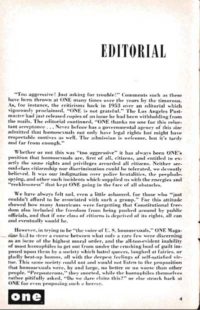 March: ONE magazine asks, “When will homosexuals stop pitying themselves?” Unlike the leadership of the Mattachine Society under Hal Call, The editors and writers for ONE often staked out forward-leaning positions in the pages of the magazine. Some feared that ONE was too aggressive and was just asking for trouble. ONE’s board chairman Dorr Legg (who went by the name of William Lambert), pushed back in an editorial: “Whether or not this was ‘too aggressive’ it has always been ONE’s position that homosexuals are, first of all, citizens, and entitled to exactly the same rights and privileges accorded all citizens. Neither second-class citizenship nor discrimination could be tolerated, we devoutly believed. It was our indignation over police brutalities, the peephole spying, and other such incidents which supplied us with the energies and ‘recklessness’ that kept ONE going in the face of all obstacles. … When are American homosexuals going to stop sitting around pitying themselves, excusing themselves, hiding their faces and bemoaning their lot? When are they going to roll up their sleeves and do some of the hard work and the fighting that any segment of society must do to defend its own rights.”
March: ONE magazine asks, “When will homosexuals stop pitying themselves?” Unlike the leadership of the Mattachine Society under Hal Call, The editors and writers for ONE often staked out forward-leaning positions in the pages of the magazine. Some feared that ONE was too aggressive and was just asking for trouble. ONE’s board chairman Dorr Legg (who went by the name of William Lambert), pushed back in an editorial: “Whether or not this was ‘too aggressive’ it has always been ONE’s position that homosexuals are, first of all, citizens, and entitled to exactly the same rights and privileges accorded all citizens. Neither second-class citizenship nor discrimination could be tolerated, we devoutly believed. It was our indignation over police brutalities, the peephole spying, and other such incidents which supplied us with the energies and ‘recklessness’ that kept ONE going in the face of all obstacles. … When are American homosexuals going to stop sitting around pitying themselves, excusing themselves, hiding their faces and bemoaning their lot? When are they going to roll up their sleeves and do some of the hard work and the fighting that any segment of society must do to defend its own rights.”![]() Mar 3: American comedian and actor Lou Costello dies of a heart attack just three days before his 53rd birthday.
Mar 3: American comedian and actor Lou Costello dies of a heart attack just three days before his 53rd birthday.
![]() Mar 4: Cuba nationalizes the Cuban Telephone Company, a subsidiary of ITT.
Mar 4: Cuba nationalizes the Cuban Telephone Company, a subsidiary of ITT.
![]() Mar 9: The Barbie doll debuts at the American International Toy Fair in New York City.
Mar 9: The Barbie doll debuts at the American International Toy Fair in New York City.
![]() Mar 9: Frankie Avalon’s single “Venus” begins its five week run at the top of the charts.
Mar 9: Frankie Avalon’s single “Venus” begins its five week run at the top of the charts.
![]() Mar 10: A rebellion breaks out in Tibet as 30,000 Tibetans surround the Dalai Lama’s palace, the Norbulingka, to prevent his arrest by the Chinese government.
Mar 10: A rebellion breaks out in Tibet as 30,000 Tibetans surround the Dalai Lama’s palace, the Norbulingka, to prevent his arrest by the Chinese government.
![]() Mar 11: Lorraine Hansberry’s play A Raisin In the Sun opens on Broadway at the Ethel Barrymore Theatre.
Mar 11: Lorraine Hansberry’s play A Raisin In the Sun opens on Broadway at the Ethel Barrymore Theatre.
![]() Mar 28: The People’s Republic of China abolishes the government of Tibet under the Dalai Lama. China installs a puppet government under the Panchen Lama.
Mar 28: The People’s Republic of China abolishes the government of Tibet under the Dalai Lama. China installs a puppet government under the Panchen Lama.
![]() Mar 29: The film Some Like It Hot, starring Marilyn Monroe, Tony Curtis and Jack Lemmon, is released.
Mar 29: The film Some Like It Hot, starring Marilyn Monroe, Tony Curtis and Jack Lemmon, is released.
![]() Mar 30: The Dalai Lama flees Lhasa in Tibet and finds sanctuary in India.
Mar 30: The Dalai Lama flees Lhasa in Tibet and finds sanctuary in India.
| ◄ | April | ► | ▲ | |||
|---|---|---|---|---|---|---|
| 1 | 2 | 3 | 4 | |||
| 5 | 6 | 7 | 8 | 9 | 10 | 11 |
| 12 | 13 | 14 | 15 | 16 | 17 | 18 |
| 19 | 20 | 21 | 22 | 23 | 24 | 25 |
| 26 | 27 | 28 | 29 | 30 | ||
![]() Apr 3: American actor David Hyde Pierce is born.
Apr 3: American actor David Hyde Pierce is born.
![]() Apr 4: In a speech at Gettysburg College in Pennsylvania, President Eisenhower announces for the first time that the U.S. is committed to keeping South Vietnam as a non-Communist nation separate from North Vietnam. “We reach the inescapable conclusion”, says Eisenhower, “that our own national interests demand some help from us in sustaining in Vietnam the morale, the economic progress and the military strength necessary to its continued existence in Freedom.”
Apr 4: In a speech at Gettysburg College in Pennsylvania, President Eisenhower announces for the first time that the U.S. is committed to keeping South Vietnam as a non-Communist nation separate from North Vietnam. “We reach the inescapable conclusion”, says Eisenhower, “that our own national interests demand some help from us in sustaining in Vietnam the morale, the economic progress and the military strength necessary to its continued existence in Freedom.”
![]()
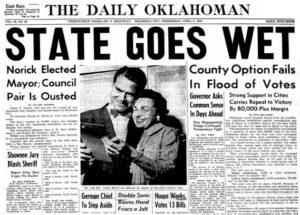 Apr 7: With a 55% to 45% margin, Oklahoma voters repeal the state’s constitutional prohibition on the sale of alcohol. Liquor sales will begin on September 1. This leaves Mississippi as the only dry state.
Apr 7: With a 55% to 45% margin, Oklahoma voters repeal the state’s constitutional prohibition on the sale of alcohol. Liquor sales will begin on September 1. This leaves Mississippi as the only dry state.
![]() Apr 9: Architect Frank Lloyd Wright dies at the age of 91.
Apr 9: Architect Frank Lloyd Wright dies at the age of 91.
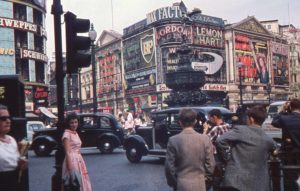 Apr 9: London’s Daily Express calls for a homosexual purge from West End theaters. The Daily Express, under the ownership of Lord Beaverbrook, carefully formed and reflected the prejudices and outrages of its conservative working-class readers. Author and historical John Deane Potter added his twopence worth in his warning about the “West Side Vice” in the theater district. The West End, he wrote, “is far too full of people belonging to a secret brotherhood. … They live complacently in their own remote world, with its shrill enthusiasms. But they are evil.” Specifically, Potter wrote that gay people were a danger because of their personal power (“If your son wants to go on the stage — what will his future be? It is a shivering thought.”) and their professional power (“…too often they try to foist upon the public a false set of values.”). He closes: “But I repeat: these are evil men. … I say they should be driven from their positions of theatrical power.”
Apr 9: London’s Daily Express calls for a homosexual purge from West End theaters. The Daily Express, under the ownership of Lord Beaverbrook, carefully formed and reflected the prejudices and outrages of its conservative working-class readers. Author and historical John Deane Potter added his twopence worth in his warning about the “West Side Vice” in the theater district. The West End, he wrote, “is far too full of people belonging to a secret brotherhood. … They live complacently in their own remote world, with its shrill enthusiasms. But they are evil.” Specifically, Potter wrote that gay people were a danger because of their personal power (“If your son wants to go on the stage — what will his future be? It is a shivering thought.”) and their professional power (“…too often they try to foist upon the public a false set of values.”). He closes: “But I repeat: these are evil men. … I say they should be driven from their positions of theatrical power.”![]() Apr 13: The Fleetwoods’ single “Come Softly To Me” begins its four week run at the top of the charts.
Apr 13: The Fleetwoods’ single “Come Softly To Me” begins its four week run at the top of the charts.
![]() Apr 15: Fidel Castro arrives in Washington, D.C. for an eleven-day American tour.
Apr 15: Fidel Castro arrives in Washington, D.C. for an eleven-day American tour.
![]() Apr 16: “Judgment at Nuremberg” is broadcast live on CBS’s Playhouse 90. It will be adapted into a film in 1961.
Apr 16: “Judgment at Nuremberg” is broadcast live on CBS’s Playhouse 90. It will be adapted into a film in 1961.
![]()
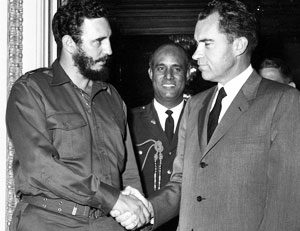 Apr 19: Fidel Castro appears on NBC’s Meet the Press and denies that Cuba will turn to communism. He meets later in the day with Vice President Richard Nixon.
Apr 19: Fidel Castro appears on NBC’s Meet the Press and denies that Cuba will turn to communism. He meets later in the day with Vice President Richard Nixon.
![]()
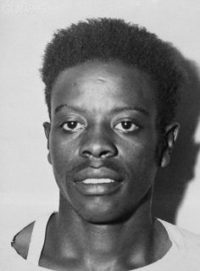 Apr 24: A lynch mob In Poplarville, Mississippi, kidnap 23-year-old Mack Charles Parker from his jail cell. Parker had been arrested two months earlier for the rape of a white woman who picked him out of a line-up. (She will later recant.) Three days before his scheduled trial, eight to ten white men, armed with guns and clubs, dragged Parker from his jail cell. One of the participants was a former sheriff J.P. Walker, with jailor Jewell Alford providing the key. The men drive Parker to the Bogalusa Bridge on the Mississippi-Louisiana state line. They beat and shoot him in the chest, weigh his body down with chains and throw it in the Pearl River. His badly beaten and decomposed body will be found floating in the river ten days later. No one is ever indicted for the crime. Parker’s murder is considered that last lynching of the civil rights era.
Apr 24: A lynch mob In Poplarville, Mississippi, kidnap 23-year-old Mack Charles Parker from his jail cell. Parker had been arrested two months earlier for the rape of a white woman who picked him out of a line-up. (She will later recant.) Three days before his scheduled trial, eight to ten white men, armed with guns and clubs, dragged Parker from his jail cell. One of the participants was a former sheriff J.P. Walker, with jailor Jewell Alford providing the key. The men drive Parker to the Bogalusa Bridge on the Mississippi-Louisiana state line. They beat and shoot him in the chest, weigh his body down with chains and throw it in the Pearl River. His badly beaten and decomposed body will be found floating in the river ten days later. No one is ever indicted for the crime. Parker’s murder is considered that last lynching of the civil rights era.
![]() Apr 25: The Saint Lawrence Seaway linking the Great Lakes and the Atlantic Ocean is opened for shipping.
Apr 25: The Saint Lawrence Seaway linking the Great Lakes and the Atlantic Ocean is opened for shipping.
| ◄ | May | ► | ▲ | |||
|---|---|---|---|---|---|---|
| 1 | 2 | |||||
| 3 | 4 | 5 | 6 | 7 | 8 | 9 |
| 10 | 11 | 12 | 13 | 14 | 15 | 16 |
| 17 | 18 | 19 | 20 | 21 | 22 | 23 |
| 24 | 25 | 26 | 27 | 28 | 29 | 30 |
| 31 | ||||||
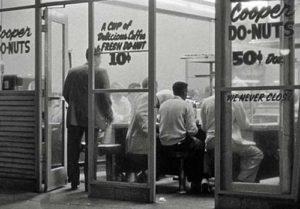 May: LGBT people riot at Cooper Do-Nuts in Los Angeles. The exact date is lost to history, but on one evening in May, two Los Angeles police officers entered the Cooper Do-Nuts shop on Main Street, in downtown’s Skid Row. The doughnut shop, located near a couple of gay bars, was popular with transwomen, lesbians, drag queens and other gay men. The two police officers entered the cafe and asked patrons for their IDs. It was common practice: if an individual’s gender presentation didn’t match the ID, that person was taken to jail. Officers try to arrest two drag queens, two male sex workers and a gay man. After the detainees protest, onlookers throw coffee, cups and trash at police, forcing the police to flee in their car. People then begin rioting in the streets. Police backup arrive, block the street for the rest of the night and make several arrests. Novelist John Rechy, one of those initially arrested, will write about it in his 1963 novel City of Night. This riot, which predated Stonewall by a decade, is believed to be one of the first LGBT uprisings in the U.S.
May: LGBT people riot at Cooper Do-Nuts in Los Angeles. The exact date is lost to history, but on one evening in May, two Los Angeles police officers entered the Cooper Do-Nuts shop on Main Street, in downtown’s Skid Row. The doughnut shop, located near a couple of gay bars, was popular with transwomen, lesbians, drag queens and other gay men. The two police officers entered the cafe and asked patrons for their IDs. It was common practice: if an individual’s gender presentation didn’t match the ID, that person was taken to jail. Officers try to arrest two drag queens, two male sex workers and a gay man. After the detainees protest, onlookers throw coffee, cups and trash at police, forcing the police to flee in their car. People then begin rioting in the streets. Police backup arrive, block the street for the rest of the night and make several arrests. Novelist John Rechy, one of those initially arrested, will write about it in his 1963 novel City of Night. This riot, which predated Stonewall by a decade, is believed to be one of the first LGBT uprisings in the U.S.![]() May 5: After three members of the Little Rock school board walk out, the remaining three members, all segregationists, vote to fire 44 teachers who had supported integration.
May 5: After three members of the Little Rock school board walk out, the remaining three members, all segregationists, vote to fire 44 teachers who had supported integration.
![]() May 12: Actress Debbie Reynolds divorces singer Eddie Fisher, who is having an affair with Elizabeth Taylor. Reynolds didn’t mention Taylor by name during the divorce proceedings. She simply told the judge, “My husband became interested in another woman.” Hours after the divorce is final, Fisher and Taylor wed.
May 12: Actress Debbie Reynolds divorces singer Eddie Fisher, who is having an affair with Elizabeth Taylor. Reynolds didn’t mention Taylor by name during the divorce proceedings. She simply told the judge, “My husband became interested in another woman.” Hours after the divorce is final, Fisher and Taylor wed.
![]() May 14: Dr. Gilbert R. Mason, St., a black Biloxi, Mississippi, physician, goes swimming at a local beach with friends and their children. A city policeman orders them to leave, saying, “Negroes don’t come to the sand beach.” When Mason tries to discover what law he had broken, Biloxi mayor Laz Quave simply says. “If you go back down there we’re going to arrest you. That’s all there is to it.” Mason will continue to petition the county board of supervisors demanding access to the beach. This is the first of three Biloxi “Wade-ins.”
May 14: Dr. Gilbert R. Mason, St., a black Biloxi, Mississippi, physician, goes swimming at a local beach with friends and their children. A city policeman orders them to leave, saying, “Negroes don’t come to the sand beach.” When Mason tries to discover what law he had broken, Biloxi mayor Laz Quave simply says. “If you go back down there we’re going to arrest you. That’s all there is to it.” Mason will continue to petition the county board of supervisors demanding access to the beach. This is the first of three Biloxi “Wade-ins.”
![]() May 22: British singer, songwriter, and former frontman for the Smiths, Steven Patrick Morrissey is born.
May 22: British singer, songwriter, and former frontman for the Smiths, Steven Patrick Morrissey is born.
![]() May 25: Little Rock voters go to the polls and recall three segregationist members of the school board.
May 25: Little Rock voters go to the polls and recall three segregationist members of the school board.
![]() May 29: British actor Rupert Everett is born.
May 29: British actor Rupert Everett is born.
| ◄ | June | ► | ▲ | |||
|---|---|---|---|---|---|---|
| 1 | 2 | 3 | 4 | 5 | 6 | |
| 7 | 8 | 9 | 10 | 11 | 12 | 13 |
| 14 | 15 | 16 | 17 | 18 | 19 | 20 |
| 21 | 22 | 23 | 24 | 25 | 26 | 27 |
| 28 | 29 | 30 | ||||
![]()
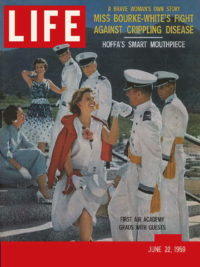 Jun 3: The U.S. Air Force Academy graduates its first class, with 207 commissioned officers.
Jun 3: The U.S. Air Force Academy graduates its first class, with 207 commissioned officers.
![]() Jun 4: The last Three Stooges short, Sappy Bull Fighters, is released to theaters.
Jun 4: The last Three Stooges short, Sappy Bull Fighters, is released to theaters.
![]() Jun 7: Johnny Horton’s single “The Battle of New Orleans” begins its six week run at the top of the charts.
Jun 7: Johnny Horton’s single “The Battle of New Orleans” begins its six week run at the top of the charts.
![]()
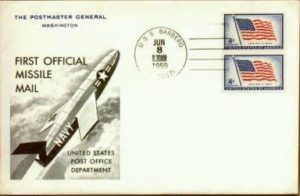 Jun 8: An experimental “missile mail” delivery is conducted when a missile containing 3,000 letters is launched from the deck of a World War II-era submarine 100 miles offshore from Norfolk. The missile successfully deploys its parachute and lands at Mayport, Florida, twenty-two minutes later. Postmaster General Arthur E. Summerfield declares the experiment a success and predicts that delivering mail via missiles will become a routine practice.
Jun 8: An experimental “missile mail” delivery is conducted when a missile containing 3,000 letters is launched from the deck of a World War II-era submarine 100 miles offshore from Norfolk. The missile successfully deploys its parachute and lands at Mayport, Florida, twenty-two minutes later. Postmaster General Arthur E. Summerfield declares the experiment a success and predicts that delivering mail via missiles will become a routine practice.
![]() Jun 9: The first ballistic missile submarine, the nuclear-powered U.S.S. George Washington, is launched in Groton, CT. It will be fitted with two Polaris nuclear missiles a year later.
Jun 9: The first ballistic missile submarine, the nuclear-powered U.S.S. George Washington, is launched in Groton, CT. It will be fitted with two Polaris nuclear missiles a year later.
![]()
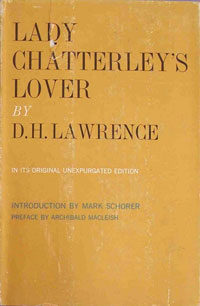 Jun 11: Postmaster Genearl Arthur E. Summerfield declares D.H. Lawrence’s Lady Chatterley’s Lover “obscene and un-mailable.” Grove Press had announced the publication of an unexpurgated edition in April.
Jun 11: Postmaster Genearl Arthur E. Summerfield declares D.H. Lawrence’s Lady Chatterley’s Lover “obscene and un-mailable.” Grove Press had announced the publication of an unexpurgated edition in April.
![]() Jun 14: The Disneyland monorail begins operation at the Anaheim theme park.
Jun 14: The Disneyland monorail begins operation at the Anaheim theme park.
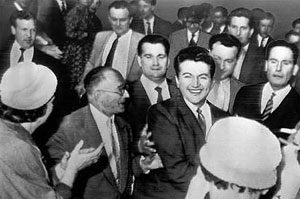 Jun 17: Liberace wins his libel case against the Daily Mirror. In 1956, a Daily Mirror columnist under the pen name Cassandra (real name: William Connor) wrote a scathing article the day after Liberace’s arrival in London for two live ITV broadcasts and a concert tour of the British Isles. Connor wrote that Liberace was a “deadly, winking, sniggering, snuggling, chromium-plated, scent-impregnated, luminous, quivering, giggling, fruit-flavored, mincing, ice-covered heap of mother love.” Liberace sues. A London jury finds Connor and the Daily Mirror guilty of libel and awards damages of $22,400 ($192,000 today).
Jun 17: Liberace wins his libel case against the Daily Mirror. In 1956, a Daily Mirror columnist under the pen name Cassandra (real name: William Connor) wrote a scathing article the day after Liberace’s arrival in London for two live ITV broadcasts and a concert tour of the British Isles. Connor wrote that Liberace was a “deadly, winking, sniggering, snuggling, chromium-plated, scent-impregnated, luminous, quivering, giggling, fruit-flavored, mincing, ice-covered heap of mother love.” Liberace sues. A London jury finds Connor and the Daily Mirror guilty of libel and awards damages of $22,400 ($192,000 today).![]() Jun 18: Queen Elizabeth II arrives in Newfoundland to begin a 45-day tour of Canada. This is the longest stay a Canadian monarch.
Jun 18: Queen Elizabeth II arrives in Newfoundland to begin a 45-day tour of Canada. This is the longest stay a Canadian monarch.
![]() Jun 26: Queen Elizabeth II, as Queen of Canada, and U.S. President Dwight D. Eisenhower formally open the Saint Lawrence Seaway.
Jun 26: Queen Elizabeth II, as Queen of Canada, and U.S. President Dwight D. Eisenhower formally open the Saint Lawrence Seaway.
| ◄ | July | ► | ▲ | |||
|---|---|---|---|---|---|---|
| 1 | 2 | 3 | 4 | |||
| 5 | 6 | 7 | 8 | 9 | 10 | 11 |
| 12 | 13 | 14 | 15 | 16 | 17 | 18 |
| 19 | 20 | 21 | 22 | 23 | 24 | 25 |
| 26 | 27 | 28 | 29 | 30 | 31 | |
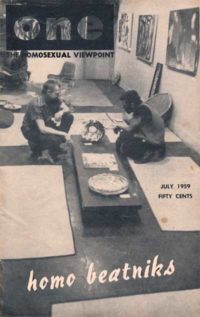 July: ONE magazine explores “The Homosexual and the Beat Generation.” The 1950s counter-cultural movement began in New York’s Greenwhich Village, before some of the leading lights moved to San Francisco’s North Beach neighborhood. They were dubbed “Beatniks” by conservative detractors who believed that they detected Anti-American Communist sympathies among the non-conforming and spontaneous hedonist. Other non-conformists — gay people — also find the movement attractive. Wallace de Ortega Maxey describes “beat-homos” this way: “The beat-homo has no inhibitions. Within his own consciousness he has accepted himself and is completely integrated. He is not fighting himself, much less the rest of the world. This applies to the male as well as the female of the species. He doesn’t give one god dam what the world thinks about him.” Maxey concludes, “With all their vices and virtues if they can teach the world by example the evils of social conformity, I feel they will go down in history as having made a worthwhile contribution.”
July: ONE magazine explores “The Homosexual and the Beat Generation.” The 1950s counter-cultural movement began in New York’s Greenwhich Village, before some of the leading lights moved to San Francisco’s North Beach neighborhood. They were dubbed “Beatniks” by conservative detractors who believed that they detected Anti-American Communist sympathies among the non-conforming and spontaneous hedonist. Other non-conformists — gay people — also find the movement attractive. Wallace de Ortega Maxey describes “beat-homos” this way: “The beat-homo has no inhibitions. Within his own consciousness he has accepted himself and is completely integrated. He is not fighting himself, much less the rest of the world. This applies to the male as well as the female of the species. He doesn’t give one god dam what the world thinks about him.” Maxey concludes, “With all their vices and virtues if they can teach the world by example the evils of social conformity, I feel they will go down in history as having made a worthwhile contribution.”![]()
 Jul 4: Following the admission of Alaska as a state earlier in the year, the 49-star flag is officially flown for the first time at Philadelphia’s Independence Hall and over Fort McHenry in Baltimore.
Jul 4: Following the admission of Alaska as a state earlier in the year, the 49-star flag is officially flown for the first time at Philadelphia’s Independence Hall and over Fort McHenry in Baltimore.
![]()
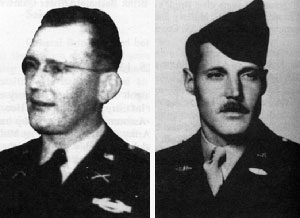 Jul 8: U.S. Army Maj. Dale R. Buis and Master Sgt. Chester M. Ovnand are killed during a Viet Cong attack at Biên Hòa. They are the first two to be formerly listed as among the 57,939 Americans to die during the Vietnam War.
Jul 8: U.S. Army Maj. Dale R. Buis and Master Sgt. Chester M. Ovnand are killed during a Viet Cong attack at Biên Hòa. They are the first two to be formerly listed as among the 57,939 Americans to die during the Vietnam War.
![]()
 Jul 13-17: The television documentary, The Hate That Hate Produced, airs in five half-hour segments over independent station WNTA-TV in New York City. Produced by Mike Wallace and African-American journalist Louis Lomax, the alarmist documentary introduces Americans to the Black Nationalist Movement. The program includes interviews with Nation of Islam leader Elijah Muhammad and charismatic spokesman Malcolm X. The interviews shock many of the millions who watch it. Most whites are stunned to learn that some African-Americans hold such strong and angry opinions about white people. Many African-Americans, including those who agree with what they hear, are shocked to hear fellow blacks uttering such opinions out loud. The Hate That Hate Produced catapults Malcolm X to national fame, and the Nation of Islam sees its membership double to 60,000 within weeks of the broadcast.
Jul 13-17: The television documentary, The Hate That Hate Produced, airs in five half-hour segments over independent station WNTA-TV in New York City. Produced by Mike Wallace and African-American journalist Louis Lomax, the alarmist documentary introduces Americans to the Black Nationalist Movement. The program includes interviews with Nation of Islam leader Elijah Muhammad and charismatic spokesman Malcolm X. The interviews shock many of the millions who watch it. Most whites are stunned to learn that some African-Americans hold such strong and angry opinions about white people. Many African-Americans, including those who agree with what they hear, are shocked to hear fellow blacks uttering such opinions out loud. The Hate That Hate Produced catapults Malcolm X to national fame, and the Nation of Islam sees its membership double to 60,000 within weeks of the broadcast.
![]() Jul 13: Paul Anka’s single “Lonely Boy” begins its four week run at the top of the charts.
Jul 13: Paul Anka’s single “Lonely Boy” begins its four week run at the top of the charts.
![]()
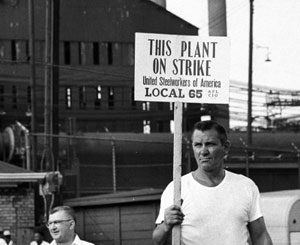 Jul 15: More than half a million steelworkers walk of the job as the United Steelworkers of America call the largest strike in U.S. history. The strike will last for 116 days require the intervention of President Eisenhower and the U.S. Supreme Court to bring it to an end on November 6.
Jul 15: More than half a million steelworkers walk of the job as the United Steelworkers of America call the largest strike in U.S. history. The strike will last for 116 days require the intervention of President Eisenhower and the U.S. Supreme Court to bring it to an end on November 6.
![]()
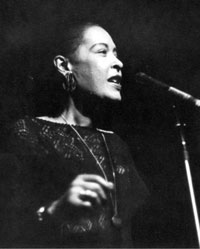 Jul 17: Jazz singer Billie Holiday dies at the age of 44. She had been admitted on May 31 for heart failure and liver disease. While she was hospitalized, Federal agents placed her under arrest for drug possession and handcuffed her to her hospital bed as she lay dying. She died with only 70¢ in the bank and $700 in her hospital room, which had been paid to her by a tabloid for an interview.
Jul 17: Jazz singer Billie Holiday dies at the age of 44. She had been admitted on May 31 for heart failure and liver disease. While she was hospitalized, Federal agents placed her under arrest for drug possession and handcuffed her to her hospital bed as she lay dying. She died with only 70¢ in the bank and $700 in her hospital room, which had been paid to her by a tabloid for an interview.
![]()
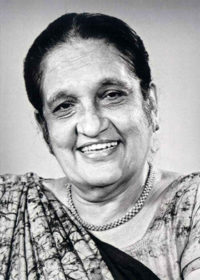 Jul 21: Sirimavo Bandaranaike becomes the modern world’s first woman to become a head of government when she takes over as Prime Minister of Ceylon (later renamed to Sri Lanka).
Jul 21: Sirimavo Bandaranaike becomes the modern world’s first woman to become a head of government when she takes over as Prime Minister of Ceylon (later renamed to Sri Lanka).
![]()
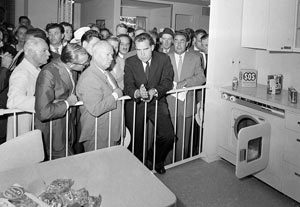 Jul 24: At the opening of the American National Exhibition in Moscow, Vice President Richard Nixon and Soviet Premier Nikita Khrushchev engage in the “Kitchen Debate.” While standing at a display of a model American kitchen, Khrushchev and Nixon argue about the merits of communism and capitalism.
Jul 24: At the opening of the American National Exhibition in Moscow, Vice President Richard Nixon and Soviet Premier Nikita Khrushchev engage in the “Kitchen Debate.” While standing at a display of a model American kitchen, Khrushchev and Nixon argue about the merits of communism and capitalism.
| ◄ | August | ► | ▲ | |||
|---|---|---|---|---|---|---|
| 1 | ||||||
| 2 | 3 | 4 | 5 | 6 | 7 | 8 |
| 9 | 10 | 11 | 12 | 13 | 14 | 15 |
| 16 | 17 | 18 | 19 | 20 | 21 | 22 |
| 23 | 24 | 25 | 26 | 27 | 28 | 29 |
| 30 | 31 | |||||
![]() Aug 5: British singer-songwriter, and founder of the band Dead or Alive, Peter Burns is born.
Aug 5: British singer-songwriter, and founder of the band Dead or Alive, Peter Burns is born.
![]() Aug 9: The SM-65 Atlas, American’s first intercontinental ballistic missile is declared operational after successful testing, The ICBM has a range of 2,700 miles.
Aug 9: The SM-65 Atlas, American’s first intercontinental ballistic missile is declared operational after successful testing, The ICBM has a range of 2,700 miles.
![]() Aug 9: American fashion designer Michael Kors is born.
Aug 9: American fashion designer Michael Kors is born.
![]() Aug 10: Four of the five singers for the Platters are arrested in Cincinnati and charged with soliciting prostitutes and using drugs. The group’s concert dates are cancelled and radio stations will refuse to play their records for several months. The Platters had a number one hit, “Smoke Gets In Your Eyes,” earlier in the year.
Aug 10: Four of the five singers for the Platters are arrested in Cincinnati and charged with soliciting prostitutes and using drugs. The group’s concert dates are cancelled and radio stations will refuse to play their records for several months. The Platters had a number one hit, “Smoke Gets In Your Eyes,” earlier in the year.
![]() Aug 12: High schools reopen in Little Rock, Arkansas, a year after being closed in order to avoid integration. Gov. Orval Faubus addresses a crowd of about a thousand segregationists at the State Capitol as the schools reopen.
Aug 12: High schools reopen in Little Rock, Arkansas, a year after being closed in order to avoid integration. Gov. Orval Faubus addresses a crowd of about a thousand segregationists at the State Capitol as the schools reopen.
![]() Aug 18: Miles Davis’s album Kind of Blue is released by Columbia Records.
Aug 18: Miles Davis’s album Kind of Blue is released by Columbia Records.
![]()
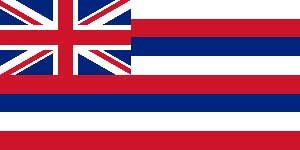 Aug 21: Hawaii is admitted to the union as the 50th state. The fiftieth star will be added to the American on July 4, 1960.
Aug 21: Hawaii is admitted to the union as the 50th state. The fiftieth star will be added to the American on July 4, 1960.
![]()
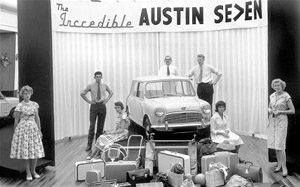 Aug 26: The original Mini Cooper, designed by Sir Alec Issigonis, is launched. It debuts as the Morris Mini Minor and the Austin Seven. It will become its own brand in 1969. The car’s transverse-mounted engine, front-wheel-drive layout and compact dimensions will revolutionize the small car market. It will became the best-selling British car in history, with 5.3 million cars produced between 1959 and the final run of the original design in 2000.
Aug 26: The original Mini Cooper, designed by Sir Alec Issigonis, is launched. It debuts as the Morris Mini Minor and the Austin Seven. It will become its own brand in 1969. The car’s transverse-mounted engine, front-wheel-drive layout and compact dimensions will revolutionize the small car market. It will became the best-selling British car in history, with 5.3 million cars produced between 1959 and the final run of the original design in 2000.
![]() Aug 30: The Browns’ single “The Three Bells” begins its four week run at the top of the charts.
Aug 30: The Browns’ single “The Three Bells” begins its four week run at the top of the charts.
| ◄ | September | ► | ▲ | |||
|---|---|---|---|---|---|---|
| 1 | 2 | 3 | 4 | 5 | ||
| 6 | 7 | 8 | 9 | 10 | 11 | 12 |
| 13 | 14 | 15 | 16 | 17 | 18 | 19 |
| 20 | 21 | 22 | 23 | 24 | 25 | 26 |
| 27 | 28 | 29 | 30 | |||
![]() Sep 1: Liquor is legally sold in Oklahoma for the first time since becoming a state in 1907.
Sep 1: Liquor is legally sold in Oklahoma for the first time since becoming a state in 1907.
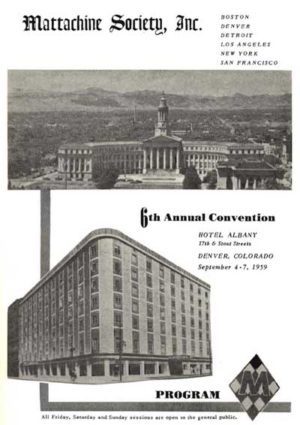 Sep 4-7: The Mattachine Society holds its sixth annual convention in Denver. About sixty people from across the country attend the Sixth Annual Mattachine Society Convention in Denver. The conference attracts extensive neutral-to-positive coverage in the Denver Post and Rocky Mountain press. It also attracts the attention of two members of the Morals Squad of the Denver Police Department and a psychiatrist from the Colorado State Prison at Cañon City. The convention deals with several organizational matters dividing the east coast (which seeks a more loosely organized federation) and west coast chapters (which successfully maintains the current centrally-controlled San Francisco-based structure). It also passes a few good-will resolutions, including one offered by a brand new San Francisco member who had joined the Society just a few weeks earlier. It expresses the Society’s appreciation to San Francisco Mayor George Christopher and Police Chief Thomas Cahill for the city’s “enlightened and just City Government and Police Force.” The reporter for ONE magazine writes that he “left Denver with a glow. The convention was a huge success. The press coverage was revolutionary. The Denver group of the Society left all the visitors full of admiration.”
Sep 4-7: The Mattachine Society holds its sixth annual convention in Denver. About sixty people from across the country attend the Sixth Annual Mattachine Society Convention in Denver. The conference attracts extensive neutral-to-positive coverage in the Denver Post and Rocky Mountain press. It also attracts the attention of two members of the Morals Squad of the Denver Police Department and a psychiatrist from the Colorado State Prison at Cañon City. The convention deals with several organizational matters dividing the east coast (which seeks a more loosely organized federation) and west coast chapters (which successfully maintains the current centrally-controlled San Francisco-based structure). It also passes a few good-will resolutions, including one offered by a brand new San Francisco member who had joined the Society just a few weeks earlier. It expresses the Society’s appreciation to San Francisco Mayor George Christopher and Police Chief Thomas Cahill for the city’s “enlightened and just City Government and Police Force.” The reporter for ONE magazine writes that he “left Denver with a glow. The convention was a huge success. The press coverage was revolutionary. The Denver group of the Society left all the visitors full of admiration.”![]()
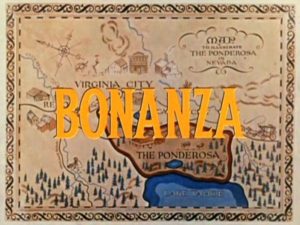 Sep 12: Bonanza, the first weekly television series broadcast completely in color, premieres on NBC.
Sep 12: Bonanza, the first weekly television series broadcast completely in color, premieres on NBC.
![]() Sep 15-28: Soviet Premier Nikita Khrushchev and his wife begin an eleven-day tour the United States at the invitation of President Dwight Eisenhower.
Sep 15-28: Soviet Premier Nikita Khrushchev and his wife begin an eleven-day tour the United States at the invitation of President Dwight Eisenhower.
![]() Sep 18: Memphis State University admits its first African-American students. The “Memphis State Eight” begin classes without incident, but are prohibited from entering restricted “white” areas of the campus.
Sep 18: Memphis State University admits its first African-American students. The “Memphis State Eight” begin classes without incident, but are prohibited from entering restricted “white” areas of the campus.
![]()
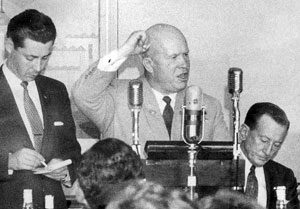 Sep 19: Khrushchev’s stop in Los Angeles turns contentious when he is offended by a speech made during a banquet, and then is enraged when he is told that he will not be able to visit Disneyland due to security concerns.
Sep 19: Khrushchev’s stop in Los Angeles turns contentious when he is offended by a speech made during a banquet, and then is enraged when he is told that he will not be able to visit Disneyland due to security concerns.
![]() Sep 25: The British horror film The Mummy is released in the U.K. It will be released in the U.S. on October 23.
Sep 25: The British horror film The Mummy is released in the U.K. It will be released in the U.S. on October 23.
| ◄ | October | ► | ▲ | |||
|---|---|---|---|---|---|---|
| 1 | 2 | 3 | ||||
| 4 | 5 | 6 | 7 | 8 | 9 | 10 |
| 11 | 12 | 13 | 14 | 15 | 16 | 17 |
| 18 | 19 | 20 | 21 | 22 | 23 | 24 |
| 25 | 26 | 27 | 28 | 29 | 30 | 31 |
![]()
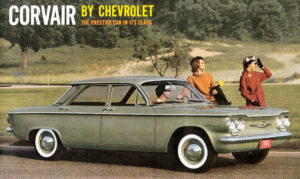 Oct 2: General Motors introduces the Chevrolet Corvair. The stylish compact, designed to compete against other foreign and domestic compacts, is the only American-designed, mass-produced car to use a rear air-cooled engine.
Oct 2: General Motors introduces the Chevrolet Corvair. The stylish compact, designed to compete against other foreign and domestic compacts, is the only American-designed, mass-produced car to use a rear air-cooled engine.
![]() Oct 2: The Twilight Zone premieres on CBS.
Oct 2: The Twilight Zone premieres on CBS.
![]()
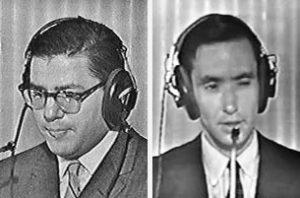 Oct 6: At a Congressional subcommittee, former game show contestants Herbert Stempel and James Snodgrass reveal that they had been supplied the answers in advance on the NBC quiz showTwenty-One.
Oct 6: At a Congressional subcommittee, former game show contestants Herbert Stempel and James Snodgrass reveal that they had been supplied the answers in advance on the NBC quiz showTwenty-One.
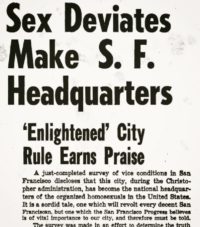 Oct 7: San Francisco mayoral candidate charges incumbent of allowing the city to become “deviate headquarters.” A seemingly innocuous resolution approved by the Matttachine Society during its Labor Day weekend convention in Denver becomes campaign fodder in the San Francisco mayoral campaign. City Assessor Russell Wolden, who is challenging mayor George Christopher in the November election, circulates copies of the Mattachine resolution commending Christopher and Police Chief Thomas Cahill for the city’s “enlightened and just City Government and Police Force.” Wolden plants stories in neighborhood newspapers. Wolden blasts Christopher for allowing San Francisco to become “deviate headquarters.” Within days, major city newspapers reveal that William P. Brandhove, the newly-minted Mattachine member who offered the resolution in Denver, is actually a political operative connected to Wolden’s campaign, and his resolution was part of a plot to discredit Christopher. The tactic backfires with major newspapers denouncing the operation as a smear campaign against the entire city. Christopher will go on to win re-election in a landslide.
Oct 7: San Francisco mayoral candidate charges incumbent of allowing the city to become “deviate headquarters.” A seemingly innocuous resolution approved by the Matttachine Society during its Labor Day weekend convention in Denver becomes campaign fodder in the San Francisco mayoral campaign. City Assessor Russell Wolden, who is challenging mayor George Christopher in the November election, circulates copies of the Mattachine resolution commending Christopher and Police Chief Thomas Cahill for the city’s “enlightened and just City Government and Police Force.” Wolden plants stories in neighborhood newspapers. Wolden blasts Christopher for allowing San Francisco to become “deviate headquarters.” Within days, major city newspapers reveal that William P. Brandhove, the newly-minted Mattachine member who offered the resolution in Denver, is actually a political operative connected to Wolden’s campaign, and his resolution was part of a plot to discredit Christopher. The tactic backfires with major newspapers denouncing the operation as a smear campaign against the entire city. Christopher will go on to win re-election in a landslide.![]()
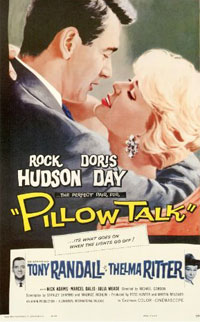 Oct 7: The first of three Rock Hudson-Doris Day comedy films, Pillow Talk, is released.
Oct 7: The first of three Rock Hudson-Doris Day comedy films, Pillow Talk, is released.
![]() Oct 11: Bobby Darin’s single “Mack the Knife” reaches the top of the charts. It will be number one for nine of the next ten weeks.
Oct 11: Bobby Darin’s single “Mack the Knife” reaches the top of the charts. It will be number one for nine of the next ten weeks.
![]() Oct 19: The play The Miracle Worker, starring Anne Bancroft and Patty Duke, opens on Broadway at the Playhouse Theatre.
Oct 19: The play The Miracle Worker, starring Anne Bancroft and Patty Duke, opens on Broadway at the Playhouse Theatre.
![]() Oct 21: The Guggenheim Museum, designed by Frank Lloyd Wright, opens to the public in New York City.
Oct 21: The Guggenheim Museum, designed by Frank Lloyd Wright, opens to the public in New York City.
![]() Oct 22: American Grammy, Emmy, Tony award-winning composer and lyricist Marc Shaiman is born.
Oct 22: American Grammy, Emmy, Tony award-winning composer and lyricist Marc Shaiman is born.
![]() Oct 24: Cuba institutes Law 851, nationalizing more than 150 American-owned businesses, including hotels, casinos and a racetrack.
Oct 24: Cuba institutes Law 851, nationalizing more than 150 American-owned businesses, including hotels, casinos and a racetrack.
![]()
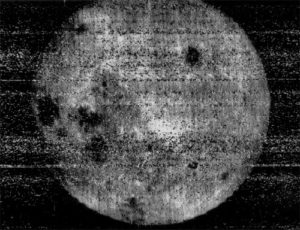 Oct 26: People on earth see the far side of the moon for the first time when the Soviet Union releases a series of crude photos taken by the Lunik 3 satellite.
Oct 26: People on earth see the far side of the moon for the first time when the Soviet Union releases a series of crude photos taken by the Lunik 3 satellite.
| ◄ | November | ► | ▲ | |||
|---|---|---|---|---|---|---|
| 1 | 2 | 3 | 4 | 5 | 6 | 7 |
| 8 | 9 | 10 | 11 | 12 | 13 | 14 |
| 15 | 16 | 17 | 18 | 19 | 20 | 21 |
| 22 | 23 | 24 | 25 | 26 | 27 | 28 |
| 29 | 30 | |||||
![]() Nov 1: Violence breaks out between the Hutu and Tsusi people in the Belgian colony of Ruanda-Urundi. The violence will lead to a three-year period of violence and instability known as the Rwandan Revolution.
Nov 1: Violence breaks out between the Hutu and Tsusi people in the Belgian colony of Ruanda-Urundi. The violence will lead to a three-year period of violence and instability known as the Rwandan Revolution.
![]()
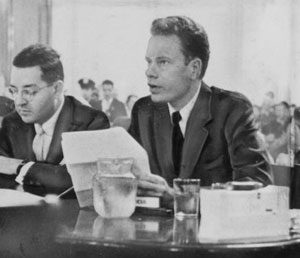 Nov 2: Charles Van Doren, the famous and telegenic 1957 winner of the Geritol-sponsored and produced quiz show Twenty-One, admits in a hearing before the House Subcommittee on Legislative Oversight that he had been supplied answers in advance. Van Doren had previously denied any wrongdoing. NBC fires him from his job on The Today Show, and he resigns as associate processor at Columbia University.
Nov 2: Charles Van Doren, the famous and telegenic 1957 winner of the Geritol-sponsored and produced quiz show Twenty-One, admits in a hearing before the House Subcommittee on Legislative Oversight that he had been supplied answers in advance. Van Doren had previously denied any wrongdoing. NBC fires him from his job on The Today Show, and he resigns as associate processor at Columbia University.
![]() Nov 4: The Moroccan government imposes emergency measures after more than 6,700 people are paralyzed by tainted cooking oil. The peanut oil had been mixed with jet aircraft engine rinse, and sold in the city of Meknes during the feat of Ramadan in September and October.
Nov 4: The Moroccan government imposes emergency measures after more than 6,700 people are paralyzed by tainted cooking oil. The peanut oil had been mixed with jet aircraft engine rinse, and sold in the city of Meknes during the feat of Ramadan in September and October.
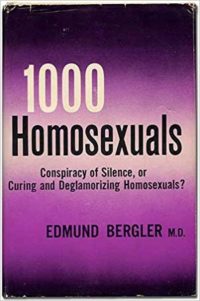 Nov 5: Psychoanalyst Edmund Bergler publishes 1000 Homosexuals. Through a series of books published in the 1950s, Bergler established himself as one of the decade’s most visible “experts” on homosexuality. His fourth and final book dealing directly with the subject, purports to describe one thousand gay men, mostly, with a few lesbians sprinkled here and there, seen by himself and eight other psychiatrists that he has trained in his techniques for curing gay people. has seen as part of his practice in curing their homosexuality. He describes homosexuality as a kind of a masochistic impulse. “Imagine a man who for mysterious reasons unconsciously wants to be mistreated by a woman,” Bergler writes. “Consciously he is unaware of this wish. Imagine, further, that this man inwardly fears his own wish. But instead of giving up the wish itself, he gives up its central figure — woman. Since there are only two sexes, this leaves him only one alternative.” Bergler ends the book with a chapter outlining his program to “deglamorize homosexuality” through an aggressive educational campaign.
Nov 5: Psychoanalyst Edmund Bergler publishes 1000 Homosexuals. Through a series of books published in the 1950s, Bergler established himself as one of the decade’s most visible “experts” on homosexuality. His fourth and final book dealing directly with the subject, purports to describe one thousand gay men, mostly, with a few lesbians sprinkled here and there, seen by himself and eight other psychiatrists that he has trained in his techniques for curing gay people. has seen as part of his practice in curing their homosexuality. He describes homosexuality as a kind of a masochistic impulse. “Imagine a man who for mysterious reasons unconsciously wants to be mistreated by a woman,” Bergler writes. “Consciously he is unaware of this wish. Imagine, further, that this man inwardly fears his own wish. But instead of giving up the wish itself, he gives up its central figure — woman. Since there are only two sexes, this leaves him only one alternative.” Bergler ends the book with a chapter outlining his program to “deglamorize homosexuality” through an aggressive educational campaign.![]() Nov 7: The U.S. Supreme Court upholds the constitutionality of the Taft-Hartley Act and orders a half a million striking steelworkers to return to work for an eighty-day cooling-off period.
Nov 7: The U.S. Supreme Court upholds the constitutionality of the Taft-Hartley Act and orders a half a million striking steelworkers to return to work for an eighty-day cooling-off period.
![]() Nov 16: The musical The Sound of Music premieres on Broadway at the Lunt-Fontanne Theatre.
Nov 16: The musical The Sound of Music premieres on Broadway at the Lunt-Fontanne Theatre.
![]()
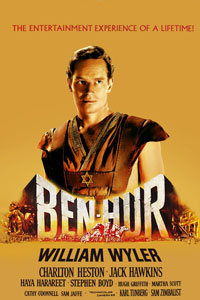 Nov 18: MGM’s multimillion-dollar megahit Ben-Hur premieres at the Loews Theater in New York City.
Nov 18: MGM’s multimillion-dollar megahit Ben-Hur premieres at the Loews Theater in New York City.
![]() Nov 19: The Rocky and Bullwinkle Show premieres on ABC as Rocky and Friends. The show will be re-named when it becomes clear the Bullwinkle the moose has become more popular than Rocky the flying squirrel.
Nov 19: The Rocky and Bullwinkle Show premieres on ABC as Rocky and Friends. The show will be re-named when it becomes clear the Bullwinkle the moose has become more popular than Rocky the flying squirrel.
![]()
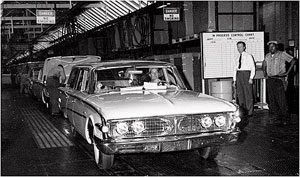 Nov 19: Ford Motor Company pulls the plug on the Edsel division as the last eighteen 1960 Edsels roll off the Louisville assembly line. The Edsel’s demise comes after losing more than $100 million (about $900 million today) during its three-year existence.
Nov 19: Ford Motor Company pulls the plug on the Edsel division as the last eighteen 1960 Edsels roll off the Louisville assembly line. The Edsel’s demise comes after losing more than $100 million (about $900 million today) during its three-year existence.
![]() Nov 20: The Declaration of the Rights of the Child is adopted by the United Nations.
Nov 20: The Declaration of the Rights of the Child is adopted by the United Nations.
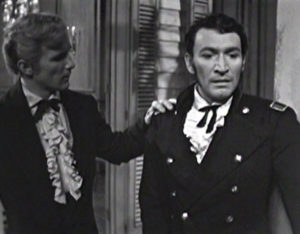 Nov 24: Britain’s ITV broadcasts a gay-themed drama. Julien Greene’s 1953 play South had been banned from public performance in London in 1955. But just four years later, it is broadcast live on ITV’s Play of the Week. South, as the title suggests, is set in the American Deep South just before the Civil War. An arrogant exiled Polish officer Lt. Jan Wicziewsky (played by Peter Wyngarde) is staying with a wealthy plantation family. His haughtiness is quickly deflated with the arrival of dashing young army officer, Eric MacClure (played by Graydon Gould), who forces Wicziewsky to face up to his deepest, darkest secret. A reviewer for The Stage and Television Today finds the play “moving and poignant. … Needless to say Peter Wyngarde as Jan the man who couldn’t talk of his love like other men, gave a stunningly brilliant performance, controlled and delicately pitched.” But the Daily Sketch counters: “I do NOT see anything attractive in the agonies and ecstasies of a pervert, especially in close-up in my sitting room. This is not prudishness. There are some indecencies in life that are best left covered up.”
Nov 24: Britain’s ITV broadcasts a gay-themed drama. Julien Greene’s 1953 play South had been banned from public performance in London in 1955. But just four years later, it is broadcast live on ITV’s Play of the Week. South, as the title suggests, is set in the American Deep South just before the Civil War. An arrogant exiled Polish officer Lt. Jan Wicziewsky (played by Peter Wyngarde) is staying with a wealthy plantation family. His haughtiness is quickly deflated with the arrival of dashing young army officer, Eric MacClure (played by Graydon Gould), who forces Wicziewsky to face up to his deepest, darkest secret. A reviewer for The Stage and Television Today finds the play “moving and poignant. … Needless to say Peter Wyngarde as Jan the man who couldn’t talk of his love like other men, gave a stunningly brilliant performance, controlled and delicately pitched.” But the Daily Sketch counters: “I do NOT see anything attractive in the agonies and ecstasies of a pervert, especially in close-up in my sitting room. This is not prudishness. There are some indecencies in life that are best left covered up.”![]() Nov 29: Rev. Martin Luther King., Jr., gives his last sermon as a pastor of Dexter Avenue Baptist Church in Montgomery, Alabama. He is resigning his pastorship to devote more time to the civil rights movement.
Nov 29: Rev. Martin Luther King., Jr., gives his last sermon as a pastor of Dexter Avenue Baptist Church in Montgomery, Alabama. He is resigning his pastorship to devote more time to the civil rights movement.
| ◄ | December | ▲ | ||||
|---|---|---|---|---|---|---|
| 1 | 2 | 3 | 4 | 5 | ||
| 6 | 7 | 8 | 9 | 10 | 11 | 12 |
| 13 | 14 | 15 | 16 | 17 | 18 | 19 |
| 20 | 21 | 22 | 23 | 24 | 25 | 26 |
| 27 | 28 | 29 | 30 | 31 | ||
![]() Dec 8: CBS President Louis G. Cowan is fired as a result of the quiz show scandal. Cowan became President after the success of a quiz show he created, The $64,000 Question, which was also caught up in the scandal.
Dec 8: CBS President Louis G. Cowan is fired as a result of the quiz show scandal. Cowan became President after the success of a quiz show he created, The $64,000 Question, which was also caught up in the scandal.
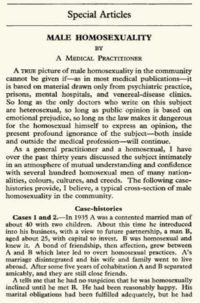 Dec 12: A Gay Doctor Tells Doctors About Gay People. Efforts in Britain to repeal its “Gross Indecency” statute are stalled. But public debate continues over the 1957 Wolfenden Report recommendation to repeal the law criminalizing gay male relationships. Participating in the debate by gay men is limited, mainly because they could still be convicted and sentenced to up to two years at hard labor. One gay doctor writes a fascinating paper about gay men for the medical journal The Lancet. Instead of providing clinical data or engaging in medical mumbo-jumbo, this anonymous doctor provides sixteen case studies — brief biographical sketches, actually — which present a fascinating glimpse into the hidden lives of these gay men.
Dec 12: A Gay Doctor Tells Doctors About Gay People. Efforts in Britain to repeal its “Gross Indecency” statute are stalled. But public debate continues over the 1957 Wolfenden Report recommendation to repeal the law criminalizing gay male relationships. Participating in the debate by gay men is limited, mainly because they could still be convicted and sentenced to up to two years at hard labor. One gay doctor writes a fascinating paper about gay men for the medical journal The Lancet. Instead of providing clinical data or engaging in medical mumbo-jumbo, this anonymous doctor provides sixteen case studies — brief biographical sketches, actually — which present a fascinating glimpse into the hidden lives of these gay men.![]() Dec 15: John L. Lewis announces his retirement as President of the United Mine Workers of America after forty years at the helm.
Dec 15: John L. Lewis announces his retirement as President of the United Mine Workers of America after forty years at the helm.
 Dec 22: Ann Arbor Police arrest 25 in “homosexual crackdown.” The arrests supposedly cap a seven-week city-wide investigation, but all of the arrests take place on the campus of the University of Michigan. Those arrested will be sentenced to ten days in jail, five years’ probation, and $275 in fines and court costs (about $2,350 today). About half are students; they will be suspended and told not to return until they seek counseling and can be considered “good social risks.” One man will commit suicide on March 13, two days before he is due in court for sentencing. The arrests inspire an interesting round of reactions in the campus newspaper, the Michigan Daily.
Dec 22: Ann Arbor Police arrest 25 in “homosexual crackdown.” The arrests supposedly cap a seven-week city-wide investigation, but all of the arrests take place on the campus of the University of Michigan. Those arrested will be sentenced to ten days in jail, five years’ probation, and $275 in fines and court costs (about $2,350 today). About half are students; they will be suspended and told not to return until they seek counseling and can be considered “good social risks.” One man will commit suicide on March 13, two days before he is due in court for sentencing. The arrests inspire an interesting round of reactions in the campus newspaper, the Michigan Daily.![]() Dec 22: The film Suddenly Last Summer, staring Elizabeth Taylor, Katharine Hepburn and Montgomery Clift, is released. The film is based on a 1958 play by Tennessee Williams, with the screenplay by Gore Vidal.
Dec 22: The film Suddenly Last Summer, staring Elizabeth Taylor, Katharine Hepburn and Montgomery Clift, is released. The film is based on a 1958 play by Tennessee Williams, with the screenplay by Gore Vidal.
![]() Dec 24: American producer, director and writer Lee Daniels is born.
Dec 24: American producer, director and writer Lee Daniels is born.
![]() Dec 29: President Dwight D. Eisenhower announces that he will not renew the voluntary moratorium on nuclear testing, which is set to expire on December 31.
Dec 29: President Dwight D. Eisenhower announces that he will not renew the voluntary moratorium on nuclear testing, which is set to expire on December 31.
![[Emphasis Mine]](http://jimburroway.com/wp-content/uploads/2018/01/McCarthyCohn.jpg)